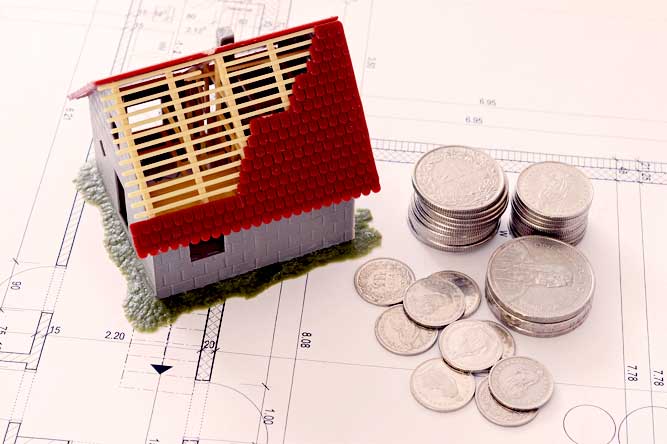Owning a home is a great accomplishment that also comes with many responsibilities. One of those responsibilities is maintaining the condition of your home and being accountable for any necessary repairs they may need. Paying for expensive garage door repairs and projects around the house is often a financial burden and a source of stress. In this article, we’ll explore effective strategies to assist you in saving for emergency garage door and home repairs, ensuring you’re well-prepared when trouble strikes.
1. Plan for Short and Long-Term Success
Begin by creating a budget for both the short and long term. Setting aside 2% – 5% of your home’s value is an effective and realistic way to prepare for unexpected garage door repairs and unforeseen home improvement projects.

Although this figure may seem high at first, you can achieve this goal by depositing a small amount of your paycheck each month into a separate account, helping you avoid spending the funds.
2. Anticipate Repair Costs
One step many people don’t realize they can take to better budget for maintenance expenses is to hire a home inspector to come in and evaluate their home for systems that may need repairs or maintenance in the near future. This service can help you prepare for any potential problem areas that need to be addressed. For example, the average cost of a new overhead garage door is around $2,500, and the average cost to repair a garage door is around $500. Saving about $1,000 per year or $85 per month ensures that funds are available when needed. This is just one system in your home, which is why having an inspector inform you of any impending costs can be advantageous.
3. Prioritize Preventative Maintenance
Prioritizing preventive maintenance is a great way to keep your household items from breaking down, ultimately saving you money in the long run. Many items in your home are easily maintained; however, some, due to their complexity, require professional servicing. For instance, it’s advisable to have licensed professionals repair and maintain your garage doors and HVAC systems, while tasks such as lubricating the garage door, pressure cleaning, and window caulking are easily completed on your own.
4. Ensure Timely Repairs of Minor Issues
Delaying repairs could cause you to spend more and also put your family’s safety at risk. Addressing minor problems in a timely manner is the best way to prevent major repairs or replacements, ensuring you don’t end up depleting your savings. For instance, worn-out garage door springs can cause balance problems with the garage door. This condition will stress the garage door’s mechanisms and components, including rollers, opener’s gears, and sprockets, potentially causing premature wear and the garage door to come off its tracks.
5. Navigating Repair Expenses with Insurance
Insurance not only protects you from the costs associated with destructive occurrences like fire, explosions, earthquakes, and water damage, but it can also help with unexpected repair or installation costs. For example, if you or someone else accidentally run your car into your garage door, the insurance may cover the repair cost or even the entire replacement cost. Choosing a policy that offers as much coverage as you can afford is always a wise idea, so take the time to consult with an agent and find which plan works best for you. Stay up to date on your payments, understand your deductible, and ensure you have enough money to cover its cost.
6. Maximize Approval Odds for Home Repair Financing
If you face an unexpected home repair expense and haven’t saved enough to cover it, you may need to consider taking out a loan or using a credit card. While not the ideal solution, it can be a lifesaver for exceptionally high home repair costs, including garage door repair and installation projects. One strategy to minimize the amount of interest paid and improve your chances of approval is to maintain a high credit score. The higher your score, the less you’ll pay in the long run, ultimately saving you money over time.
Securing Your Home Sweet Home
While it may take time, consistently setting aside a specified amount from each paycheck will help you reach your savings goals. This proactive approach enables you to avoid delaying necessary repairs, ensuring the safety and security of your home and family. Moreover, educating yourself about proper home maintenance for various components can keep your property in good shape, preventing costly repairs in the future.







